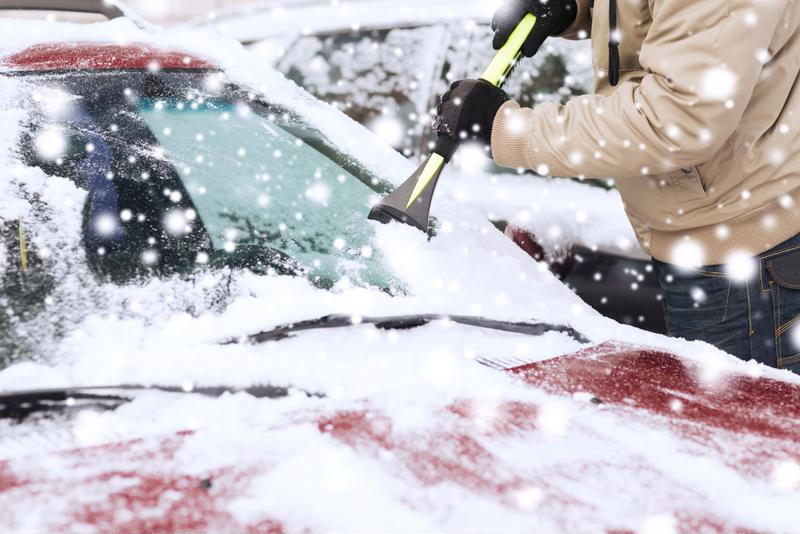With the season of winter quickly approaching, it's time to prepare for the change in weather that everyone's been waiting for – snow. Whether you love or hate the cold stuff that falls from the sky and immediately accumulates on the ground, your car has never been a fan. In order to make sure your car functions properly throughout the harsh, frigid months of winter, it's important to give it some TLC before the snow rolls in. Here are a few simple ways to prepare your car for winter and ensure a safe and easy commute for you and your passengers.
Pack an emergency kit
For starters, you should always have an emergency kit in your car. If you don't already, make sure to get one before the first big winter blizzard. Unfortunately, you never know what could happen during a snow storm, so it's important to take immediate safety precautions before winter arrives.
Besides having a spare tire and the tools to change it out ready, The Department of Motor Vehicles suggested packing this list of things in your car:
- Snow brush and ice scraper
- Blankets and gloves
- An extra pair of boots
- A radio
- Engine oil
- Windshield washer fluid
- Coolant
- Flares
- A flash light.
 Make sure to put a snow brush and ice scraper in your car before the first snow.
Make sure to put a snow brush and ice scraper in your car before the first snow. Test the battery and charging system
According to Autoblog, the cold weather can be extremely detrimental to your car's battery and electrical system. Simply test your battery by turning on the headlights before starting the engine. If you notice that the lights are brighter after starting the engine, Autoblog recommended taking your car to a mechanic for a thorough test.
Check your heaters, defrosters and wipers
The Car Care Council suggested checking your heaters, defrosters and wipers to make sure they are in proper working condition for safe driving vision. Consider using cold weather washer fluid and replacing your windshield wipers to ensure maximum safety while driving through harsh blizzards.
"Your car's cooling system should be checked year-round."
Check your car's coolant
Some might think you don't need to worry about your car's cooling system until the summer, but that's just not the case. Autoblog said if your car's coolant is not mixed properly, the chance of it freezing is higher, which can lead to severely damaging your engine or radiator. Though it's best to check your car's manual, it's typically recommended to have a 50/50 mixture of water and anti-freeze for year-round driving.
Check your breaks
The Car Care Council said the braking system is the most important safety item in your vehicle. It's extremely important to get your breaks inspected before the winter season. The National Institute of Automotive Service Excellence recommends getting your brakes checked periodically to prevent further damage and repairs that might come from neglect. By examining your brake system, you can reduce the chance of accidents from happening and ensure a secure drive for you and your passengers.
Examine your tires, replace them if necessary
ASE recommends checking your tires for remaining tread line, uneven wearing as well as cuts and nicks. Worn tires can be extremely dangerous in winter weather, so it's critical to keep them in tip-top shape. Be sure to check your tire pressure once a month and rotate as often as your car's manual recommends. Poorly aligned wheels make your engine work harder, which causes your car to use more gasoline than necessary. Consider taking your car to the mechanic for new tires or a rotation to make sure they are ready for the slippery roads.



